Passing the torch and preparing future generations for leadership
By Michael Z. Muhammad, Contributing Writer- August 23, 2022
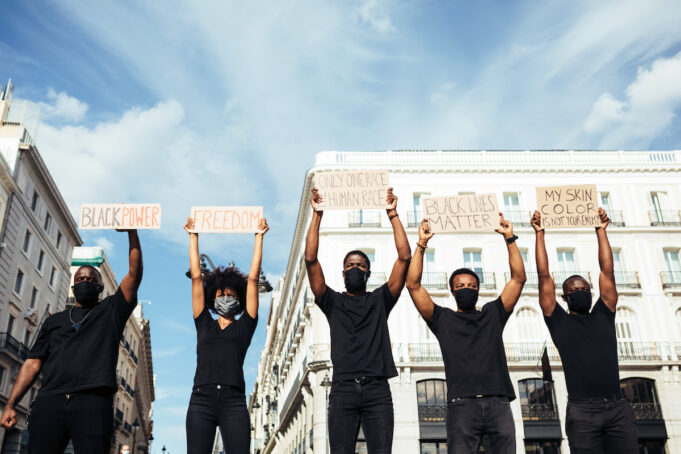
People protesting at a rally for racial equality. Black Lives Matter.
“You, our young people, are the strongest, most powerful generation that we have ever produced since our fathers were brought to these shores as slaves. You are greatly misunderstood, not only by your elders but oftentimes by your parents. We produced this generation and we cannot deny what we have produced. They are different from us. They are not hope, they are fulfillment.
But when the thing that is hoped for comes along, sometimes we are not prepared for what we hoped for.”
—Minister Louis Farrakhan
“Our Youth: The Most Powerful Generation We’ve Produced Since Slavery” July 17, 1993
 ›
›
Most people in the Black community may have never heard of Black August if you mention it to them. The same could be said about anything of significance to Black liberation, and it is designed to be that way.
George Jackson, Jonathan Jackson, and Fred Hampton are just a few of the many faces that come to mind when thinking about Black August, a month that commemorates the countless Black freedom fighters who died at the hands of police brutality and racism. However, the month is also a time to reflect on the progress the fight for Black liberation and continuing that legacy of uncompromising strength, faith and leadership for freedom, justice and equality.
George Jackson, Jonathan Jackson, and Fred Hampton were all young, Black freedom fighters who gave their lives in the struggle for freedom. Fred Hampton was an activist as a child, before rising to prominence as deputy chairman of the Illinois chapter of The Black Panther Party prior to his violent death at age 21 at the hands of Chicago Police in 1969.
“You, our young people, are the strongest, most powerful generation that we have ever produced since our fathers were brought to these shores as slaves. You are greatly misunderstood, not only by your elders but oftentimes by your parents. We produced this generation and we cannot deny what we have produced. They are different from us. They are not hope, they are fulfillment.
But when the thing that is hoped for comes along, sometimes we are not prepared for what we hoped for.”
—Minister Louis Farrakhan
“Our Youth: The Most Powerful Generation We’ve Produced Since Slavery” July 17, 1993
 ›
›Most people in the Black community may have never heard of Black August if you mention it to them. The same could be said about anything of significance to Black liberation, and it is designed to be that way.
George Jackson, Jonathan Jackson, and Fred Hampton are just a few of the many faces that come to mind when thinking about Black August, a month that commemorates the countless Black freedom fighters who died at the hands of police brutality and racism. However, the month is also a time to reflect on the progress the fight for Black liberation and continuing that legacy of uncompromising strength, faith and leadership for freedom, justice and equality.
George Jackson, Jonathan Jackson, and Fred Hampton were all young, Black freedom fighters who gave their lives in the struggle for freedom. Fred Hampton was an activist as a child, before rising to prominence as deputy chairman of the Illinois chapter of The Black Panther Party prior to his violent death at age 21 at the hands of Chicago Police in 1969.
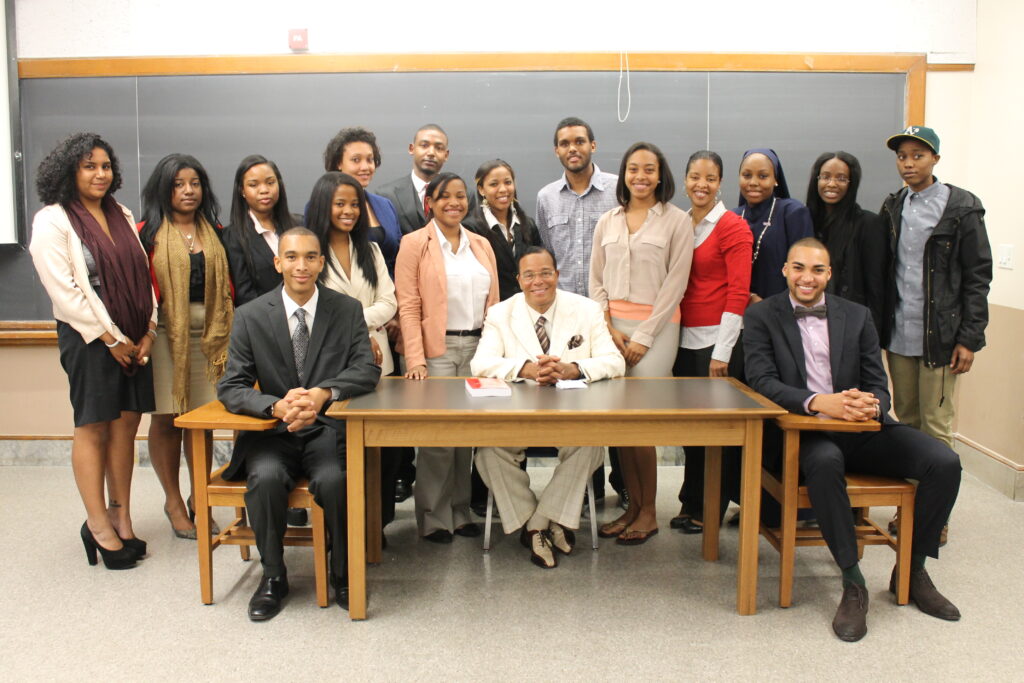
Minister Farrakhan met with the executive organizing committee for the Afrikan Black Coalition’s 2012 conference following his message.Photo: Fikreselam Habebo
Ruchell Magee on August 7, 1970 was the “jailhouse lawyer” in the Marin County California courtroom, testifying for another inmate, when 17-year-old Jonathan Jackson brandished a shotgun and kidnapped the judge, two prosecutors, and three jurors as hostages in a “jailbreak plan” to free his jailed brother, George Jackson, he felt was being held unjustly. Their fearlessness and sacrifice have resonated with activists and are reflected upon and studied during Black August.
This year marks the 43rd anniversary of Black August and its spirit is being infused in a new generation of Black youth who are picking up the mantel. Through events such as workshops, concerts, and community service projects, they are continuing the tradition of using this month as a tool for education and empowerment.
Ruchell Magee on August 7, 1970 was the “jailhouse lawyer” in the Marin County California courtroom, testifying for another inmate, when 17-year-old Jonathan Jackson brandished a shotgun and kidnapped the judge, two prosecutors, and three jurors as hostages in a “jailbreak plan” to free his jailed brother, George Jackson, he felt was being held unjustly. Their fearlessness and sacrifice have resonated with activists and are reflected upon and studied during Black August.
This year marks the 43rd anniversary of Black August and its spirit is being infused in a new generation of Black youth who are picking up the mantel. Through events such as workshops, concerts, and community service projects, they are continuing the tradition of using this month as a tool for education and empowerment.
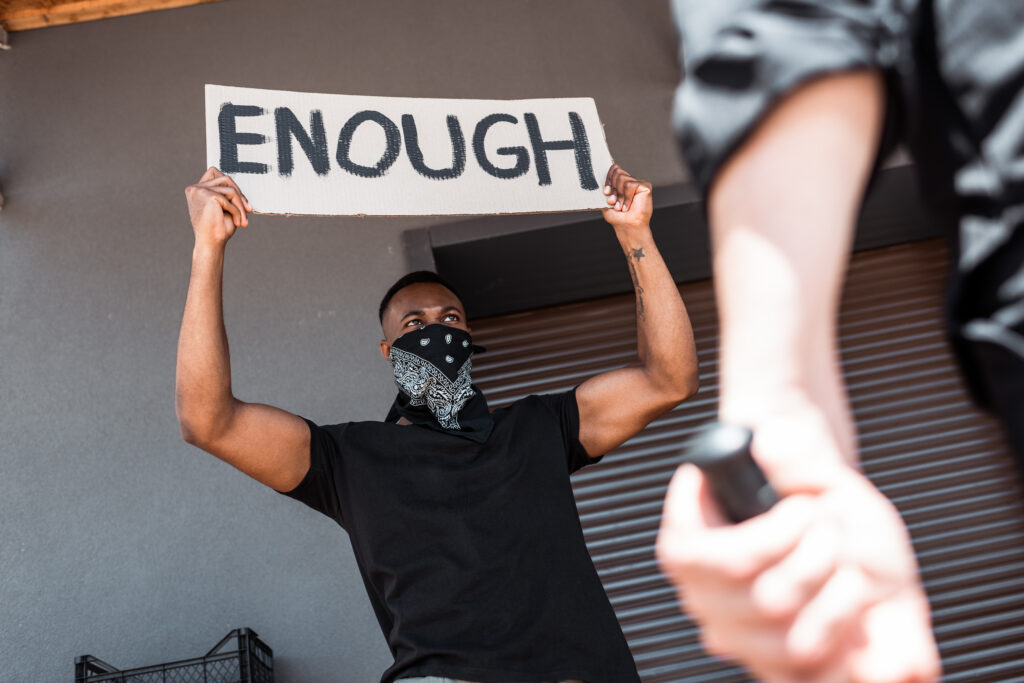
Pam Africa is a long-time political activist who is a member of the revolutionary group MOVE and founder of the Family and Friends of Mumia Abu Jamal. She told The Final Call it is a must that the mantel of leadership be passed to the youth. “Consistency, you know, we must stay consistent,” she said.
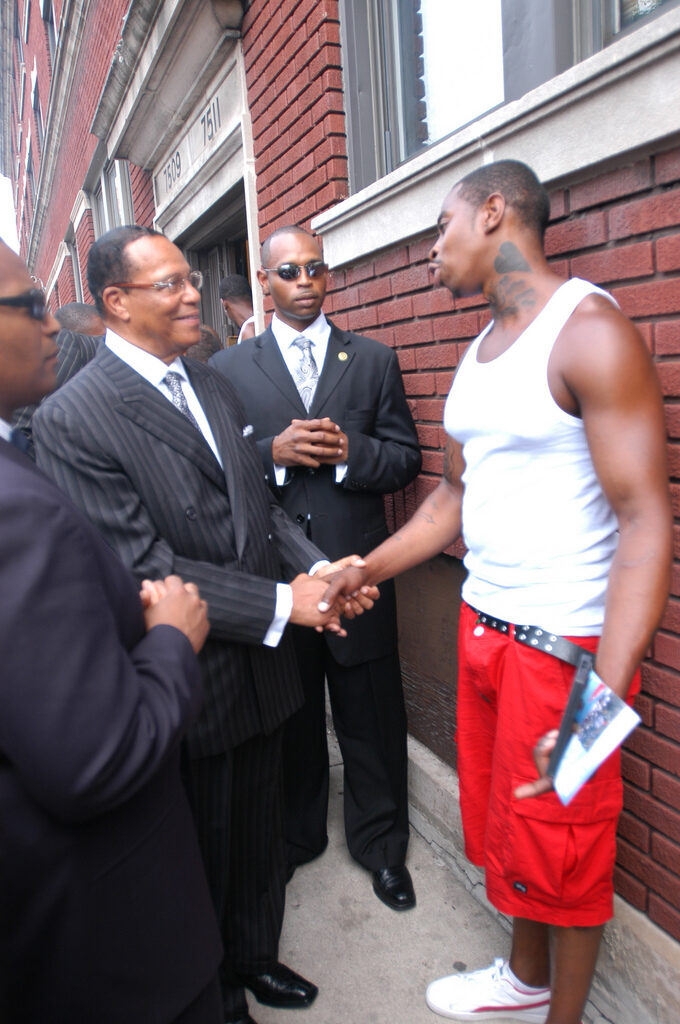
The Honorable Minister Louis Farrakhan of the Nation of Islam greets a young Chicago resident.
Valencia Gunder’s organization, The Black Collective, has been vital in keeping Black August alive. She told The Final Call that their key focus is the cultivation of youth. “We have different opportunities for them to learn in. So, folks who come volunteer with us we do fellowships that is like an eight-week program to teach the youth exactly what it is that we do, and also teach them to be aligned with our politics and we do political education and services and things like that. That’s called Revolutionary Organizing School. The Black Collective is committed to educating and empowering the next generation of Black leaders,” said Ms. Gunder.
“To address the needs of our younger youth, we partner with Power Youth. This local organization provides educational opportunities for grade school students that address advocacy and leadership skills as well as organizational knowledge to help them be effective members in their communities,” she added.
As the pandemic broke in 2020, The Black Collective partnered with several organizations to sponsor a virtual Hip Hop Summit. The event featured some of today’s most promising musicians and gave them an opportunity for dialogue about issues affecting Black communities across America.
This month, Durham, North Carolina will host Black August weekend from August 26-28. Youth from all over the city are expected to attend.
Ms. Gunder’s emphasized the importance of teaching youth to bring joy in their struggle and she dreams that one day they can continue “to keep building.” This is why Ms. Gunder believes it’s so important we stay disciplined with our work, with rigor and focus because “we are fighting for our lives.”
Young people are often the driving force behind social change. From the civil rights movement to the fight to free political prisoners, young people must be at the forefront of progress. Today, there are a number of organizations that are focused on empowering youth and educating them about freedom, justice and equality.
Jomo Muhammad with the Malcolm X Grass Roots Movement is one such organization. In an interview with The Final Call, Jomo Muhammad spoke about the importance of youth empowerment and the work his organization is doing to support young people. He also mentioned other organizations like the Movement for Black Lives and Black Youth Project 100 who are also working to empower youth.
He spoke on the importance of Black August, the need to understand the collectivity that it represents. “I think the most important thing is to be practicing together and sharing the good news,” he said.
Valencia Gunder’s organization, The Black Collective, has been vital in keeping Black August alive. She told The Final Call that their key focus is the cultivation of youth. “We have different opportunities for them to learn in. So, folks who come volunteer with us we do fellowships that is like an eight-week program to teach the youth exactly what it is that we do, and also teach them to be aligned with our politics and we do political education and services and things like that. That’s called Revolutionary Organizing School. The Black Collective is committed to educating and empowering the next generation of Black leaders,” said Ms. Gunder.
“To address the needs of our younger youth, we partner with Power Youth. This local organization provides educational opportunities for grade school students that address advocacy and leadership skills as well as organizational knowledge to help them be effective members in their communities,” she added.
As the pandemic broke in 2020, The Black Collective partnered with several organizations to sponsor a virtual Hip Hop Summit. The event featured some of today’s most promising musicians and gave them an opportunity for dialogue about issues affecting Black communities across America.
This month, Durham, North Carolina will host Black August weekend from August 26-28. Youth from all over the city are expected to attend.
Ms. Gunder’s emphasized the importance of teaching youth to bring joy in their struggle and she dreams that one day they can continue “to keep building.” This is why Ms. Gunder believes it’s so important we stay disciplined with our work, with rigor and focus because “we are fighting for our lives.”
Young people are often the driving force behind social change. From the civil rights movement to the fight to free political prisoners, young people must be at the forefront of progress. Today, there are a number of organizations that are focused on empowering youth and educating them about freedom, justice and equality.
Jomo Muhammad with the Malcolm X Grass Roots Movement is one such organization. In an interview with The Final Call, Jomo Muhammad spoke about the importance of youth empowerment and the work his organization is doing to support young people. He also mentioned other organizations like the Movement for Black Lives and Black Youth Project 100 who are also working to empower youth.
He spoke on the importance of Black August, the need to understand the collectivity that it represents. “I think the most important thing is to be practicing together and sharing the good news,” he said.
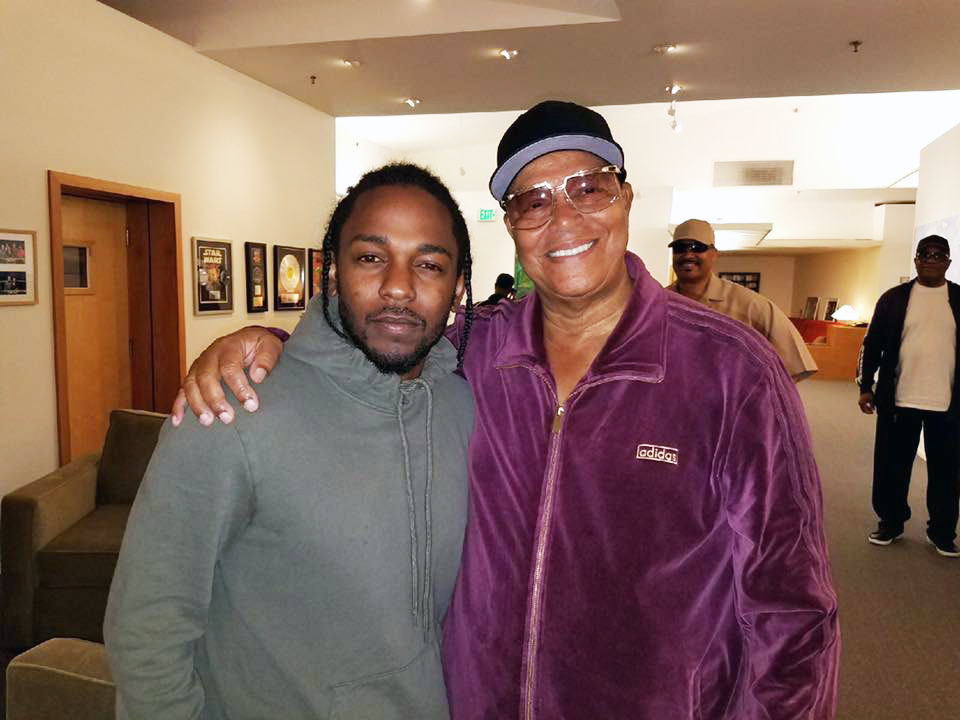
Min. Farrakhan with Kendrick Lamar
The Black August tradition began in 1979 to commemorate fallen freedom fighters of the Black Liberation Movement. Today, it is also used as a time to call for the release of political prisoners in the United States, to condemn the oppressive conditions of U.S. prisons, and to emphasize the continued importance of the Black Liberation struggle. Observers of Black August commit to higher levels of discipline throughout the month. This can include fasting from food and drink, frequent physical exercise and political study, and engagement in political struggle. In short, the principles of Black August are: “study, fast, train, fight.”
The Black August tradition began in 1979 to commemorate fallen freedom fighters of the Black Liberation Movement. Today, it is also used as a time to call for the release of political prisoners in the United States, to condemn the oppressive conditions of U.S. prisons, and to emphasize the continued importance of the Black Liberation struggle. Observers of Black August commit to higher levels of discipline throughout the month. This can include fasting from food and drink, frequent physical exercise and political study, and engagement in political struggle. In short, the principles of Black August are: “study, fast, train, fight.”
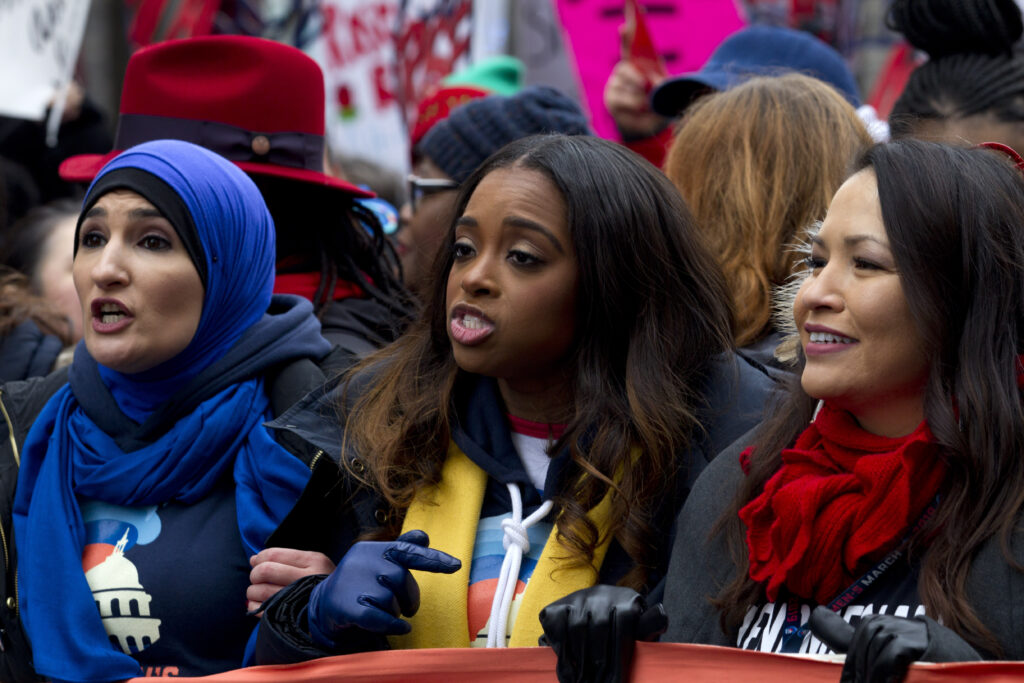
Co-presidents of the 2019 Women’s March, Linda Sarsour, left, and Tamika Mallory, center, join other demonstrators on Pennsylvania Avenue during the Women’s March in Washington on Saturday, Jan. 19, 2019. (AP Photo/Jose Luis Magana)
Jomo Muhammad stated that today’s youth need to be reminded of the struggles that came before them, and how those struggles can be used to inform and empower their own lives today. He urged all people to take part in Black August, not just to remember the past, but to build a better future.
Student Minister Dr. Wesley Muhammad, a member of the Nation of Islam’s Executive Council, emphasized Minister Louis Farrakhan’s reach and influence among the youth. He credits the Minister for having a positive impact on their thinking.
Jomo Muhammad stated that today’s youth need to be reminded of the struggles that came before them, and how those struggles can be used to inform and empower their own lives today. He urged all people to take part in Black August, not just to remember the past, but to build a better future.
Student Minister Dr. Wesley Muhammad, a member of the Nation of Islam’s Executive Council, emphasized Minister Louis Farrakhan’s reach and influence among the youth. He credits the Minister for having a positive impact on their thinking.
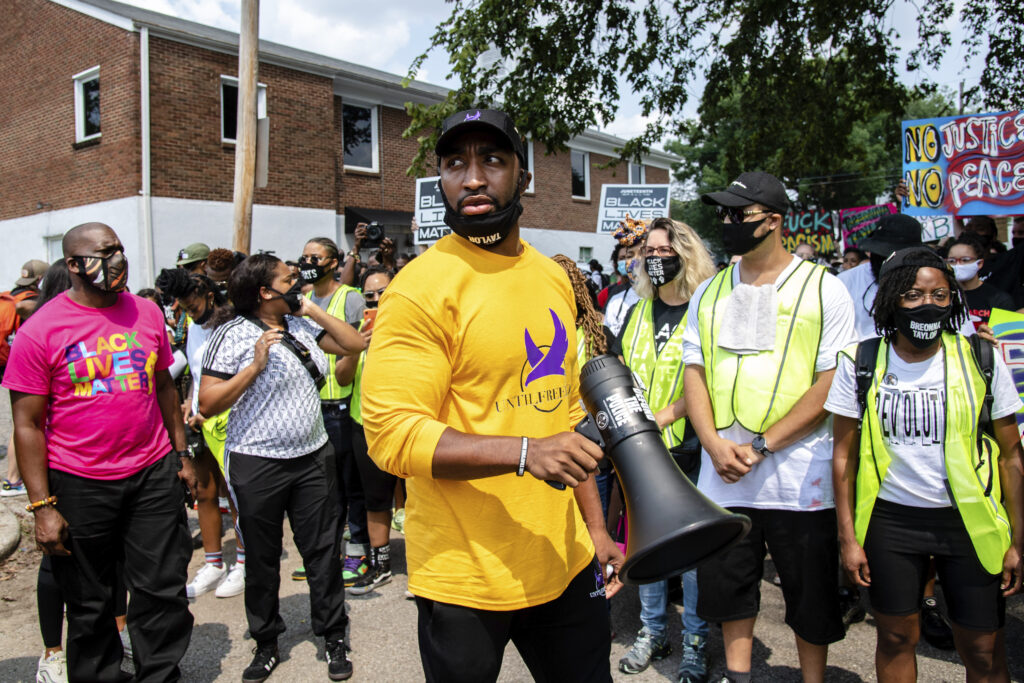
Mysonne Linen, cofounder of Until Freedom, participates in the Good Trouble Tuesday march for Breonna Taylor, on Tuesday, Aug. 25, 2020, in Louisville, Ky. (Amy Harris/Invision/AP)
“It’s undeniable that the Minister has had a significant effect on the youth today, and his message continues to resonant with them,” he said. Dr. Wesley Muhammad, an author, researcher and scholar, points to the hip hop artists of the 90s. They quickly represented the Nation of Islam and Minister Farrakhan as an example of this influence. The Minister today remains as influential among youth as he was then.
“It’s undeniable that the Minister has had a significant effect on the youth today, and his message continues to resonant with them,” he said. Dr. Wesley Muhammad, an author, researcher and scholar, points to the hip hop artists of the 90s. They quickly represented the Nation of Islam and Minister Farrakhan as an example of this influence. The Minister today remains as influential among youth as he was then.
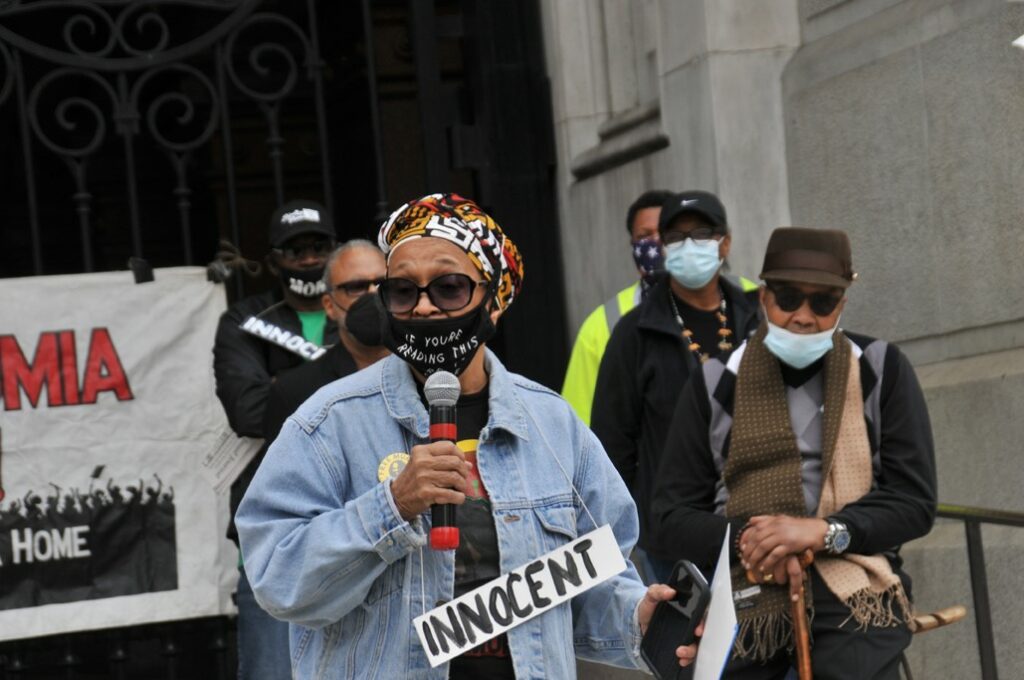
Pam Africa
Min. Farrakhan has called the current generation of young Black, Latino and Indigenous youth “fearless” and refers to them as “The Joshua Generation,” named for the biblical prophet sent by Moses to spy out the land that God promised and who eventually led the people of Israel into the Promised Land of Canaan. Our fearless Black youth are ready to move for liberation, Min. Farrakhan teaches. At 89 years of age, the Minister still resonates with, impacts and influences young people.
Zakiyyah Muhammad, 26, from Macon, Georgia, noted how many people describe the current generation of Black youth as the worst generation. “They think we don’t vote enough. They think we’re lazy. They think we don’t hold on to the ideas of the White man’s world. They think that we need to go along to get along. Just everything that is bad,” she said. She explained that Minister Farrakhan “sees a lot in our generation when a lot of people have written us off.”
To her, being a part of the Joshua Generation means taking the good from the previous generations, analyzing the not so good and fulfilling what previous generations fought and died for.
Understanding the role of Black and Indigenous youth in ushering in Allah’s (God’s) Kingdom, Min. Farrakhan for decades has spoken on college campuses and in 2015 featured young activists like Tamika Mallory and others at the Washington, D.C. gathering on October 10, 2015 for “Justice or Else,” the 20th anniversary of the Million Man March.
Min. Farrakhan has called the current generation of young Black, Latino and Indigenous youth “fearless” and refers to them as “The Joshua Generation,” named for the biblical prophet sent by Moses to spy out the land that God promised and who eventually led the people of Israel into the Promised Land of Canaan. Our fearless Black youth are ready to move for liberation, Min. Farrakhan teaches. At 89 years of age, the Minister still resonates with, impacts and influences young people.
Zakiyyah Muhammad, 26, from Macon, Georgia, noted how many people describe the current generation of Black youth as the worst generation. “They think we don’t vote enough. They think we’re lazy. They think we don’t hold on to the ideas of the White man’s world. They think that we need to go along to get along. Just everything that is bad,” she said. She explained that Minister Farrakhan “sees a lot in our generation when a lot of people have written us off.”
To her, being a part of the Joshua Generation means taking the good from the previous generations, analyzing the not so good and fulfilling what previous generations fought and died for.
Understanding the role of Black and Indigenous youth in ushering in Allah’s (God’s) Kingdom, Min. Farrakhan for decades has spoken on college campuses and in 2015 featured young activists like Tamika Mallory and others at the Washington, D.C. gathering on October 10, 2015 for “Justice or Else,” the 20th anniversary of the Million Man March.
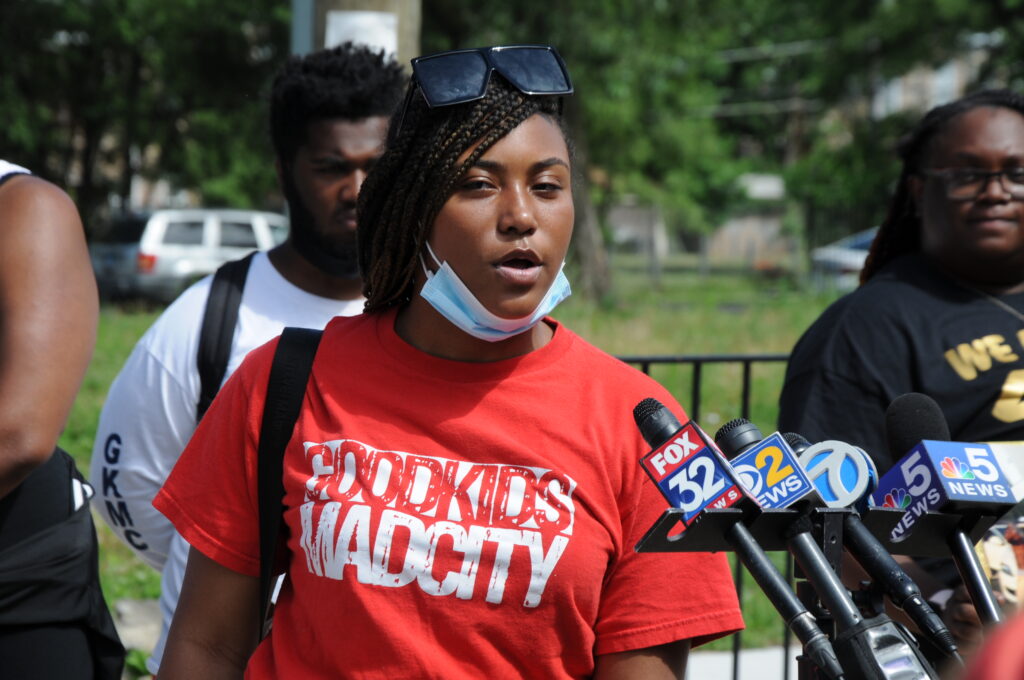
Miracle Boyd, 18, speaks during press conference July 11.
“The biggest names in hip hop are still dropping his name to add street cred to their music, and young people are still drawn to his message. I know that Farrakhan now resonates with young people as he did 30 years ago. His message is timeless, and it’s remarkable,” stated Student Min. Wesley Muhammad.
He explained that Minister Farrakhan recently introduced publicly the members of the Executive Council, the Nation’s leadership body, as a way of assuring the community of the Nation’s stability. The Minister and 13-member Executive Council of the Nation of Islam appeared on the WVON 1690 AM Morning Show with host and longtime activist Eddie Read on May 16. The NOI Executive Council consists of Muslim men and women who are students and followers of the Most Honorable Elijah Muhammad under the guidance, leadership, and example of Min. Farrakhan. The Council is tasked with governing the affairs of the over 90-year-old Nation of Islam based on the teachings of the Hon. Elijah Muhammad.
“The biggest names in hip hop are still dropping his name to add street cred to their music, and young people are still drawn to his message. I know that Farrakhan now resonates with young people as he did 30 years ago. His message is timeless, and it’s remarkable,” stated Student Min. Wesley Muhammad.
He explained that Minister Farrakhan recently introduced publicly the members of the Executive Council, the Nation’s leadership body, as a way of assuring the community of the Nation’s stability. The Minister and 13-member Executive Council of the Nation of Islam appeared on the WVON 1690 AM Morning Show with host and longtime activist Eddie Read on May 16. The NOI Executive Council consists of Muslim men and women who are students and followers of the Most Honorable Elijah Muhammad under the guidance, leadership, and example of Min. Farrakhan. The Council is tasked with governing the affairs of the over 90-year-old Nation of Islam based on the teachings of the Hon. Elijah Muhammad.
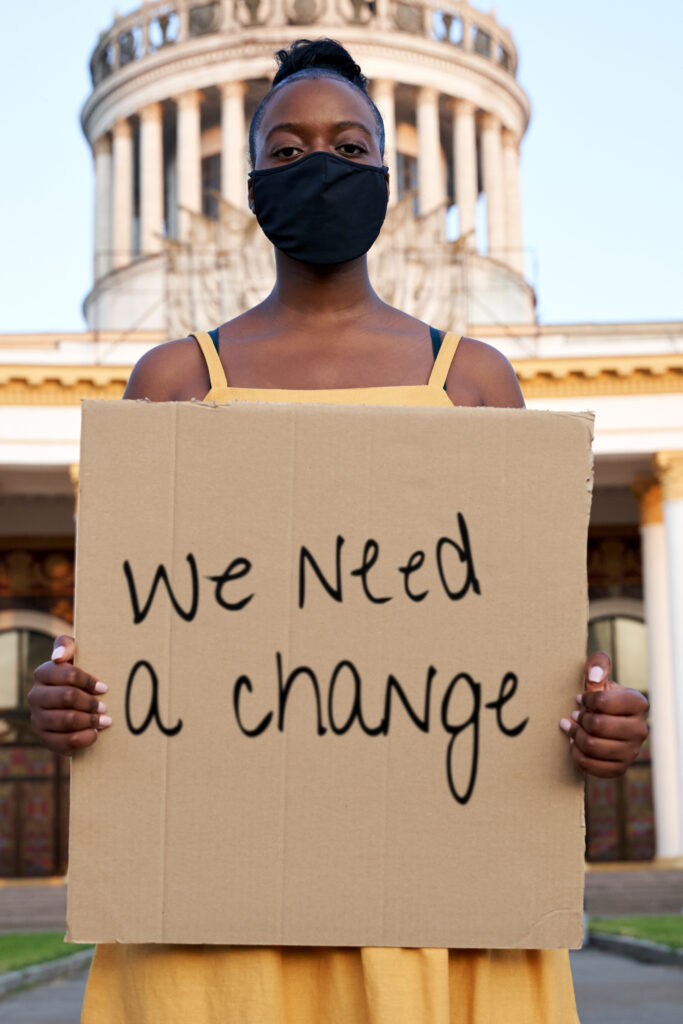
Many members of the Executive Council came into the ranks of the NOI as teenagers and young adults. But today they are mature people who are “rooted in the law and Teachings of the Honorable Elijah Muhammad. That’s why I chose them to be on his Council so that he (Elijah Muhammad) is on the Council,” said Min. Farrakhan.
Student Min. Wesley Muhammad said that the move was welcomed by many, as it provided a much-needed sense of security during these uncertain times.
“The Nation of Islam is currently in a period of transition from Mosque to Nation. It’s a sign of strength and foresight on the part of Minister Farrakhan. He realized that the Nation could not survive if it relied on one individual. So, he put measures in place to ensure continuity of leadership in the event of his departure,” he explained.
“The Executive Council he established consists of 13 members, each of whom has a unique role in leading the Nation through this dark period ‘like slices of bread from a divine loaf of bread.’ Together, they are stronger than any individual could ever be, and they will help ensure that the Nation thrives for many years to come. Thanks to Minister Farrakhan’s vision and leadership, the Nation of Islam is poised for a bright future,” said Student Min. Wesley Muhammad. Final Call staff contributed to this report.
Stay tuned for part two of: “The Joshua Generation: Cultivating and inspiring the next generation of fearless freedom fighters for our people and why it matters,” in a future edition of The Final Call.